Eric E. Wright's Blog
September 25, 2025
Harvest
Harvest is in full swing. Rusty-gold swaths of soybeans, interspersed with vast fields of corn stretch over hill and dale. Farmer’s stands groan under the weight of bushels of tomatoes, baskets of cucumbers, piles of squash, pumpkins, beans, corn and potatoes. Only stubble remains where giant combines rumbled through fields of wheat and oats and barley.
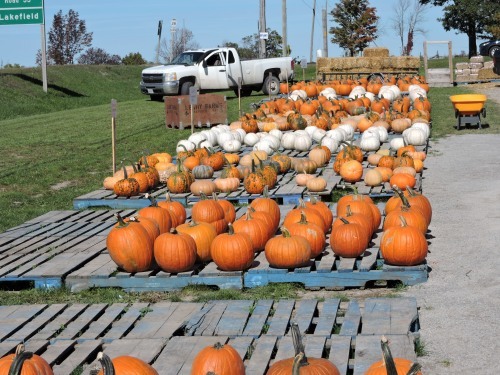
Throughout the Scriptures, God challenges us to bring forth a harvest of righteousness. “Peacemakers who sow in peace raise a harvest of righteousness.”[1] The book of Hebrews promises a “harvest of righteousness and peace.”[2] Paul writes to the Corinthians that God “will enlarge the harvest of your righteousness,” unless they sow sparingly.[3]
How can we prepare for a harvest of righteousness? Like a farm harvest, a spiritual harvest depends on good soil, good seed, a hard-working farmer, and the participation of skilled harvesters. Read Matt. 25:31-46.
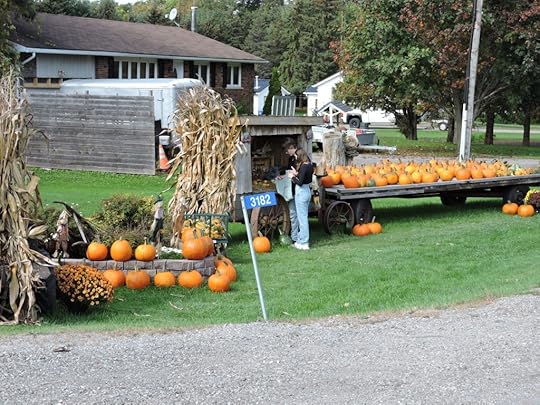
The good soil, in this analogy, expresses a different lesson that the soil in Jesus’ parable of the sower. It pictures the need for righteous character. In the Sermon on the Mount Christ calls us to adopt heart attitudes that prepare us for an abundant harvest: humility, sensitivity to sin, meekness, hunger and thirst for righteousness, compassion, purity of motive, a peacemaking spirit, and stamina in the face of persecution. Paul describes the fruit produced by the Spirit in a righteous person as: love, joy, peace, patience, gentleness, goodness, faith, meekness, and self-control. Both the beatitudes and the fruit of the Spirit define Christ-like character. How can we expect God to reap a good harvest if pride, impatience, and selfishness warp our characters?
Second, a good spiritual harvest depends on the sowing of the genuine seed of the gospel. Whether or not we have evangelistic skills, all of us can participate in some way in sowing the seed. That involves preparing ourselves with an understanding of the gospel. “Always be prepared to give an answer to everyone who asks you to give the reason for the hope that you have.”[4] People who display righteous character, including a hopeful outlook, create curiosity. Curiosity provokes questions. When someone asks us about what we believe or why we react with hope in times of stress, we have an opportunity to plant gospel seed.
Third, a good harvest depends on careful attention to the growing crop. Farmers who expect a good harvest stay close to their fields. They labor long and hard, fertilizing, cultivating, and weeding. Believers who long for a harvest of souls stay involved in the lives of their neighbors, friends, and acquaintances. Knowing that we often grow weary, Paul encourages us not to give up. “Let us not become weary in doing good, for at the proper time we will reap a harvest if we do not give up. Therefore, as we have opportunity, let us do good to all people, especially to those who belong to the family of believers.”[5]
Paying close attention to the field in which God places us—the people in our lives—leads us to do good whenever we have an opportunity. We should give especial priority to helping those in the family of God. The kind acts we do enrich our communities, preparing them for a good harvest. These deeds, however, must issue from a humble heart and not be attempts to impress others with our piety. The parable of the sheep and goats in Matthew 25 commends those who did good without conscious thought. The parable specifically mentions feeding the hungry, clothing the destitute, visiting the sick and imprisoned, and showing hospitality to foreigners. But many other activities could also be mentioned. Jesus taught that even offering a cup of cold water was significant in God’s sight.
Finally, we must remember that, at the harvest, all who participate will reap benefits, not just those with the gift of evangelism—soul winners. “We have different gifts according to the grace given us.”[6] Some will sow and others will cultivate the soil. Some will water the crop and still others conduct the harvest. “Neither he who plants nor he who waters is anything, but only God, who makes things grow. The man who plants and the man who waters have one purpose and each will be rewarded according to his own labor. For we are God’s fellow workers.”[7]
What if our lives produce no harvest? Scattered up and down the country roads, lie fields choked by weeds—thistles and golden rod and vetch and ragweed. Fields where no effort was expended. No plowing. No disking. No sowing. No cultivating. No fertilizing. So unlike the fields tended by hard-working farmers. Sadly, some will stand before the judgment seat of Christ with no fruit to offer him.
Heavenly Father I pray there might be a harvest of righteousness from my life. Strengthen me so I can labor tirelessly in the field in which you have placed me. Help me to show interest in my neighbors, colleagues, family, and friends without being nosey or intrusive. Show me when and how to offer practical and compassionate help. Help me not to be afraid to testify to your grace. Arouse curiosity among my acquaintances that moves them to ask about my faith. Enable me to declare the gospel in understandable and interesting ways. Make my life fruitful.
(Let me know your thoughts on this subject. If you appreciate this blog, please pass it on. If I can help you spiritually, let me know. Further articles, books, and stories at: Facebook: Eric E Wright Twitter: @EricEWright1 LinkedIn: Eric Wright ; Eric’s books are available at: https://www.amazon.com/Eric-E.-Wright/e/B00355HPKK%3Fref=dbs_a_mng_rwt_scns_share)
Watch for the reprinting of this devotional classic.
[1] James 3:18
[2] Heb. 12:11
[3] See 2 Cor. 9:6,10
[4] 1 Peter 3:15
[5] Gal. 6:9,10
[6] Rom. 12:6
[7] 1 Cor. 3:7-9
September 15, 2025
Fallen Leaves and Unchanging Promises
Fallen leaves litter lawns. Trees stand bare. A northwest wind assails pedestrians causing them to turn up their collars against the bite. A chill of grumbling about the long months ahead frosts conversation around the water coolers. People talk wistfully of last summer’s fun and of retiring early so they can move to a country that has summer all year long. A place where the leaves never fall.
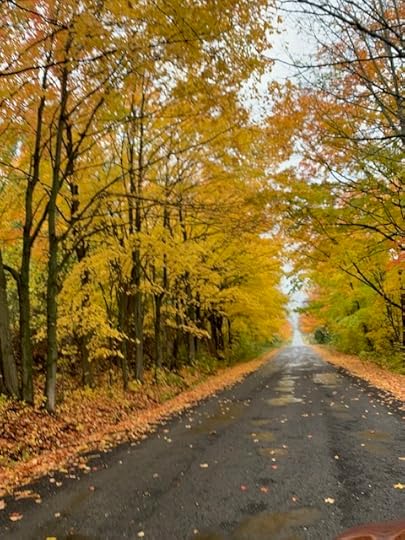
We forget that no place on earth is safe from change. Most of the countries with summer-like climates have tsunamis and typhoons and volcanoes and coups and runaway inflation and malaria. Better to look elsewhere for something changeless.
Where shall we look? Malachi reminded Israel that the promise of their escape from total destruction was rooted in the covenant promises God made to Jacob. “I, the Lord, do not change. So you, O descendants of Jacob are not destroyed.”[1]
The storms of winter that break around us need have no impact on our soul health. Like Jacob, those who have been born again by faith in the gospel seed discover that their soul-stability rests in God’s unchanging word. “For you have been born again, not of perishable seed, but of imperishable, through the living and enduring word of God.” In this passage, Peter contrasts the frailty of mankind in general with the passing glory of grass and flowers. “‘All men are like grass and all their glory is like the flowers of the field; the grass withers and the flowers fall, but the word of the Lord stands forever.’ And this is the word that was preached to you.”[2]
The leaves fall. The weather changes. But in our hearts we can rest in God and his unchanging word. “Your word, O Lord, is eternal; its stands firm in the heavens. Your faithfulness continues through all generations.”[3] God’s faithfulness guarantees his ongoing commitment to keep his promises and his power enables him to actually fulfill them. “His divine power has given us everything we need for life and godliness through our knowledge of him . . . through these he has given us his very great and precious promises.”[4]
Consider a few of God’s amazing promises.
Foundational to all his promises—eternal salvation through Christ. “Believe in the Lord Jesus Christ and you shall be saved.”[5] “And this is what he promised us—even eternal life.”[6]
A home in heaven. “In my Father’s house are many rooms; if it were not so, I would have told you. I am going there to prepare a place for you.”[7]
The forgiveness of our sins. “If we confess our sins, he is faithful and just and will forgive us our sins and purify us from all unrighteousness.”[8]
God’s presence. “When you pass through the waters, I will be with you; and when you pass through the rivers, they will not sweep over you. When you walk through the fire, you will not be burned; the flames will not set you ablaze.”[9] “I [Jesus] will be with you always, to the very end of the age.”[10]
The provision of our needs. “My God will meet all your needs according to his glorious riches in Christ Jesus.”[11]
Answered prayer. “This is the confidence we have in approaching God: that if we ask anything according to his will, he hears us. And if we know that he hears us—whatever we ask—we know that we have what we asked of him.”[12]
Guidance. “The Lord is my shepherd . . . He guides me in paths of righteousness for his name’s sake.”[13]
Flowers may fade. Our bodies may weaken. But our soul can sing and dance in the light cast into the gathering gloom by his promises.
Heavenly Father lift my heart high above the weather to soar on the wings of faith. Keep me from succumbing to the prevailing gloom by warming my spirit through the glow cast by your promises. Lead me to that special promise, the one I need at this very time.
(Let me know your thoughts on this subject. If you appreciate this blog, please pass it on. If I can help you spiritually, let me know. Further articles, books, and stories at: Facebook: Eric E Wright Twitter: @EricEWright1 LinkedIn: Eric Wright ; Eric’s books are available at: https://www.amazon.com/Eric-E.-Wright/e/B00355HPKK%3Fref=dbs_a_mng_rwt_scns_share)
[Watch for a reprint of this book of reflections on nature down our country road.]
[1] Malachi 3:6 [2] 1 Peter 1:24,25 [3] Psalm 119:89,90 [4] 2 Peter 1:3,4 [5] Acts 16:31 [6] 1 John 2:25
[7] John 14:2 [8] 1 John 1:9 [9] Is 43:2 [10] Matt. 28:20 [11] Phil. 4:19 [12] 1 John 5:14,15 [13] Ps 23:1,3
August 30, 2025
All Nature Sings and so Should We
When I lived in a wooded setting I wrote the following about birdsong filling the air.
Robins serenade the rising sun. A cardinal whistles its distinctive tune. Goldfinch warble. The melodic notes of song sparrows reverberate from tree to tree. Mourning doves coo. Chickadees chatter. Somewhere down the slope near the stream a bass drum sounds—a ruffled grouse strutting his stuff. Not to be outdone a woodpecker picks up the tune on a hollow tree. The echoes reverberate throughout the valley.
I envy our feathered friends their musical prowess. Ever since grade school when I failed an audition for a part in a Stephen Foster musical, I’ve avoided singing in public. Tough, when one is a pastor expected to lead in congregational singing! I had to make it very clear, wherever I served, that singing was not one of my abilities. When seated in a congregation I keep my voice low enough so that neighboring worshippers aren’t distracted by my off-key renditions. When I wax too loud, Mary Helen gives me a jab.

The fact that I’m musically challenged doesn’t mean I don’t love music. I often tune in to the local classical station or play CD’s while I work. Music is one of God’s greatest gifts to us. It captures our moods. It encourages our hearts. It instructs our minds. It lifts us from darkness into light. Through music we rise on the wings of angels to join the throngs around the throne.
With such a wonderful God to celebrate, it’s no wonder that God’s children love to sing. From the songbook of the Old Testament to “The Messiah”; from Isaac Watts and Charles Wesley to the explosion of contemporary music in our day—whatever you might think about today’s bards—believers sing on their way to heaven.
Moses and Deborah celebrated deliverance with song. David sang everywhere; in the mountains with his flock of sheep, deep in a cave when hunted by his enemies, on the road to Zion while bringing up the ark and especially in the temple. His son, Solomon, composed 1005 songs, including the sweet “Song of Songs”. Even one of Job’s erstwhile comforters got it right when he spoke of God giving songs in the night. Paul and Silas sang in prison. In the Bible’s climactic vision of future glory we see the hosts of heaven singing the song of Moses and the new song of the Lamb.[1]
Around the earth churches emulate the Bible’s songsters. Sadly, embarrassment at my poor singing voice restricts how much I sing around the house. Perhaps that’s why in the morning one of the first things I do is leaf through the hymnbook. What a treasure! Like the songbirds it encourages us to awaken the day with song.
When morning gilds the skies,
My heart awaking cries,
May Jesus Christ be praised. [2]
In the morning, before our necessary duties intervene, and as the day ends, we would be wise to emulate the sweet psalmist of Israel who wrote, “Where morning dawns and evening fades you call forth songs of joy.”[3]
Joyful, joyful we adore thee
God of glory, Lord of love;
Hearts unfold like flowers before thee,
Opening to the sun above.[4}
Overcome with a poetic vision of God’s providential care for the world, David exults, “the grasslands . . the hills . . . the meadows . . .the valleys . . . they shout for joy and sing.”[5] Although all creation groans in its frustration over the effects of the fall, yet a mysterious consciousness of the creative majesty of God overcomes creation’s reticence, and calls forth songs of praise.[6]
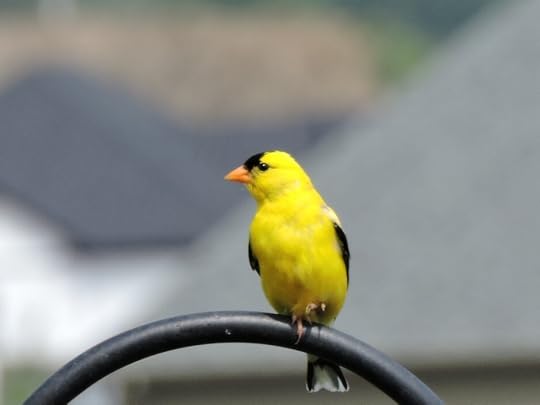
I like to think that the birds join that chorus.
This is my Father’s world,
And to my listening ears
All nature sings, and round me rings
The music of the spheres. [7]
Even when enemies plot our harm or trouble dogs our footsteps David teaches us to find renewed courage through singing of God’s glories. Pursued by Saul’s men, David composed a song that concludes; “I will sing of your strength, in the morning I will sing of your love; for you are my fortress, my refuge in times of trouble.”[8]
A mighty fortress is our God
A bulwark never failing;
Our helper He amid the flood
Of mortal ills prevailing. [9]
The Scriptures urge us to sing in darkness and pain and trouble and night. Perhaps this habit of singing in prison helped the apostle Paul to pen the joyful and enlightening prison epistles from his prison cell.
He giveth more grace when the burden grows greater;
He sending more strength when the labors increase.
To added affliction He addeth His mercy
To multiplied trials, His multiplied peace.[10]
The songs we sing around the Lord’s Table are especially meaningful.
Jesus, Thy blood and righteousness
My beauty are, my glorious dress;
Midst flaming worlds, in these arrayed,
With joy shall I lift up my head. [11]
Since my singing has been rather circumspect during my lifetime, I trust there will be much song at my funeral. Morose thought? Hardly. Consider:
Face to face with Christ my Savior,
Face to face—what will it be—
When with rapture I behold Him,
Jesus Christ who died for me?
Or this one:
There’s a land that is fairer than day,
And by faith we can see it afar,
For the Father waits over the way
To prepare us a dwelling place there.
I have a feeling that my voice will sound like that of an angel in that land that is fairer than day!
Heavenly Father, remind me to look more often in the hymnbook. Such a wealth of uplifting praise, heartening instruction, and heart-felt comfort! Blessed Holy Spirit, may the birdsong I hear every morning remind me to lift my heart often in praise and thanksgiving.
(Let me know your thoughts on this subject. If you appreciate this blog, please pass it on. If I can help you spiritually, let me know. Further articles, books, and stories at: Facebook: Eric E Wright Twitter: @EricEWright1 LinkedIn: Eric Wright ; Eric’s books are available at: https://www.amazon.com/Eric-E.-Wright/e/B00355HPKK%3Fref=dbs_a_mng_rwt_scns_share)
[Watch for news of the reprinting of this book; Down A Country Road]
[1] Deut. 32; Judges 5; 1 Kings 4:30; Job 35:10; Acts 16:25; Eph. 5:19; Rev. 5:9; 14:3; 15:3
[2] Translated by Edward Caswall from Katholisches Gesangbuch, Wurzburg, 1828
[3] Psalm 65:8
[4] Text by Henry Van Dyke, Music by Beethoven. Note all hymns quoted are in the public domain.
[5] Psalm 65:12,13
[6] See Rom 8:19-21
[7] Maltbie D. Babcock
[8] Psalm 59:16
[9] Martin Luther, translated by Frederick H. Hedge
[10] Annie Johnson Flint
[11] Nicolaus L. von Zinzendorf: translated by John Wesley
August 24, 2025
Savouring Summer along with Ripe Tomatoes
Summer is a cornucopia of wonderful tastes. Forget haute cuisine. I’d rather sample sun-kissed garden produce any day. Homegrown lettuce. New potatoes. Peas and beans picked in the morning, smothered in butter in the evening. Tender, young cukes. Local corn whose kernels, when tested, squirt milk in your eye. And especially the taste of sun-ripened local tomatoes. A flavor to carry with us through the cold days of winter.
I can almost taste a fresh, homegrown tomato as I write. Thick slices on a hunk of sourdough bread. Whew, I wish the sun would hurry them to our table. Then we could forget about all those gassed clones shipped from Florida or Mexico. We could ignore those hothouse tomatoes trying desperately to conjure up some of the flavor of a sun-drenched tomato from a local garden.

Taste is another of God’s astonishing gifts of grace. David used taste as a metaphor to illustrate the apex of human experiences. “Taste and see that the Lord is good; blessed is the man who takes refuge in him.”[1]
David wrote about God’s goodness during a desperate time. He was fleeing for his life from King Saul’s murderous jealousy. He and his men had taken refuge with Saul’s enemy, the king of Gath. Alarmed, Gath’s advisors warned that David represented a greater threat than Saul. To blunt this perception, David first pretended madness then escaped further into the wilderness.
In spite of the terror of betrayal and danger, David penned an amazing Psalm of praise. “I extol the Lord at all times . . . I sought the Lord and he answered; he delivered me from all my fears. . . This poor man called, and the Lord heard him; he saved him out of all his troubles. The angel of the Lord encamps around those who fear him, and delivers them. Taste and see that the Lord is good.”[2]
David’s psalm illustrates the experience of many saints who have endured great suffering. People come to know God deeply when they cry out to him: in trials, in persecutions, in pain, in sadness, in grief, in danger, in poverty. When fear grips our hearts and we desperately call out to God, he often gives a life-changing sense of his presence. “The Lord is close to the brokenhearted and saves those who are crushed in spirit.”[3] Without this element of desperation and helplessness, we often cruise through life trusting in our own abilities to solve problems. We may know about God, but we don’t savour his goodness.
Like many people I had picky eating habits as a child. I didn’t like onions. Now I use them in all my cooking. I didn’t like shrimp. Today, it’s one of my favorites. I certainly didn’t like spicy foods. Then we lived for years in Pakistan where everything was cooked with garlic, onions, chili peppers, and turmeric. Now, we frequently cook curry.
What happened to change my taste in foods? I got dumped into situations where I had to try different dishes. Boarding meals at college. Dinners at friends’ homes. Immersion in the Pakistani culture. I quickly learned that if I didn’t want to starve, I needed to try new foods. Tasting new foods led to the revelation; “Hey that really tastes good!”
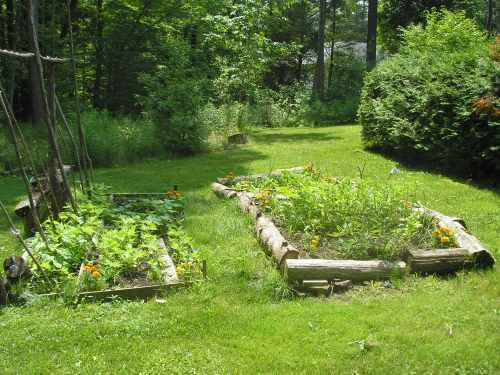
Sadly, vast numbers of people have poor spiritual taste buds. Some see evil in the world and blame God. Others just ignore him. Some deny his existence. Others perceive him as the cause of the bad things that happen to them. None have really tasted God’s goodness. They know nothing about God because God is beyond their experience.
Those who cry out to God in their extremity experience his goodness. “I sought the Lord, and he answered me. This poor man called, and the Lord heard him; he saved him out of all his troubles.” Those who cry out, those who seek, “taste and see that the Lord is good.”
Every believer knows something of God’s goodness. How good is God, the Father, who loved us enough to send his son? How good is God, the Son, who died while bearing our sins? How good is God, the Spirit, who stoops to dwell within our tarnished hearts?
Without some sense of God’s goodness, Christian growth is impossible. Imagine having no taste for food. No delight in fresh produce or—for many of us—a perfectly grilled T-bone steak. Those remembered tastes call us back for more. Pointing to the growth of infants, Peter writes, “Like newborn babies, crave pure spiritual milk, so that by it you may grow up in your salvation.” He goes on to point out that this craving comes to those, “who have tasted that the Lord is good.”[4]
The memory of the first ripe tomatoes fills me with longing. And the memory of past experiences of God’s goodness makes me hungry for more of his presence. Certainly, an explosion of taste sensations will follow us into eternity as God reveals more and more of his glory and grace.
Father, I have tasted your goodness. One glance at the cross confronts me with your love. Another glance down through the years reminds me that “goodness and mercy have followed me all the days of my life.” Sometimes your goodness shone in privation. Sometimes in days of sunshine and success. Sometimes in pain. Sometimes in utter inadequacy and fear. Lord, please don’t let my hunger and thirst for your presence fade into a distant memory.
[Watch for the re-issue of this book of devotional thoughts; Down A Country Road.]
(Let me know your thoughts on this subject. If you appreciate this blog, please pass it on. If I can help you spiritually, let me know. Further articles, books, and stories at: Facebook: Eric E Wright Twitter: @EricEWright1 LinkedIn: Eric Wright ; Eric’s books are available at: https://www.amazon.com/Eric-E.-Wright/e/B00355HPKK%3Fref=dbs_a_mng_rwt_scns_share)
[1] Psalm 34:8
[2] Psalm 34:1-4,6-8
[3] Psalm 34:18
[4] 1 Peter 2:2,3
August 18, 2025
Of Butterflies and so-called Noxious Plants
I used to get a yearly warning to get rid of noxious weeds on our property. It arrived along with our municipal tax bill. An unspecified fine was threatened.
Noxious weeds? Scary but puzzling. Which are noxious and which harmless? Unfortunately, they don’t append a list. I know from experience that poison ivy is a menace. I’ve had its blisters pop up too often to ignore it. And ragweed seems to cause the misery of hay fever. But what about lamb’s quarters, goldenrod, and milkweed?
Yes, take milkweed for example. As children, the milk that oozed from a broken milkweed stem fascinated us. And in craft classes we’d often decorate the pods for Christmas. Otherwise, the plant seems useless—a noxious weed. However, researchers discovered that the milkweed leaf is the only food that monarch caterpillars eat. Since the milkweed is poisonous to most predators, it keeps the spectacularly colored monarchs safe. What if we had obliterated all the milkweed in Ontario? Ergo, no monarchs!
The absence of these magnificent butterflies wouldn’t cause a ripple in the financial markets. But I would be sad along with thousands of others all over North America, including Mexico. I look forward to these butterflies flitting around my garden.

Is the beauty of the monarchs and the pleasure they bring enough to agitate for the survival of milkweed? Or must something be useful to be conserved? To broaden the question; would the world be poorer without whales and orchids, royal Bengal tigers and coral reefs, caribou and ferns?
Beauty or utility? How is the Christian to approach questions like these that raise issues of conservation? We must first search the Scriptures for guidance. In Genesis One we discover that God gave Adam and Eve responsibilities. “Be fruitful and increase in number, fill the earth and subdue it. Rule over the fish of the sea and the birds of the air and over every living creature that moves on the ground.”[1] Chapter two describes a garden where God placed them, “to work it and take care of it.”[2]
Clearly, God gives mankind permission to utilize the earth and its resources for human benefit. But don’t the words “subdue” and “rule over” sound ominous? Could this command include permission to rape and pillage the earth? To burn its rain forests? To deplete the seas of fish? To hunt bears for their body parts? To fill our oceans with PCB’s? To clear all agricultural land of trees so mammoth machines can sweep over the land unhindered for miles? To confine farm animals to narrow pens in vast factories that pollute the ground water for miles around? No, a thousand times no!

God calls us to treasure and care for the earth, including all its resources—animal, vegetable or mineral. Eventually, he will judge us for our stewardship, including the legacy we leave. We have no right to disrupt earth’s fragile balance for short-term gain. We have no right to allow the extinction of a species just because they seem to serve no useful purpose.
Who but God, the creator of all, can really understand what some call, “the balance of nature”? God created a world of living things inter-connected by their dependence on each other. At the very beginning God said, “To all the beasts of the earth and all the birds of the air and the creatures that move on the ground—everything that has the breath of life in it—I give every green plant for food.” Bio-diversity and ecological balance are creation concepts.
Failure to conserve the unique habitats of the earth will harm mankind. Not only will the destruction of the rainforest deplete earth’s store of oxygen, but it will also diminish the gene pool. Perhaps the cure for malaria, cancer or Alzheimer’s disease is out there somewhere waiting to be discovered.
Even if no use is ever found for obscure species, we have a responsibility to preserve their existence because God declared them good. “God called the dry ground ‘land’ and the gathered waters he called ‘seas.’ And God saw that it was good.”[3] “And God said, ‘Let the land produce vegetation’ . . . And God saw that it was good.”[4] “And God said, ‘Let the water teem with living creatures, and let birds fly above the earth.’ . . . And God saw that it was good.”[5] “And God said, ‘Let the land produce living creatures.’ . . . And God saw that it was good.”[6]
Surely, we don’t want to be found guilty of destroying what God has declared good. Frequently, we’ll be unable to point to any utility in a plant or creature. Perhaps some things exist only because God delights in creating complexity and beauty. Preserving living things that project the artistry of the Creator is a Christian duty.
To return to the monarch butterfly, who can deny that God declared it good? Who can deny that God has given it the milkweed for food? Still monarchs remained a mystery until recent times.
Until 1975 it was not known that the monarch butterflies of eastern North America migrated. After all, they lacked the size and sturdiness of birds. And how could they possibly find their way? When they disappeared in November, pundits assumed they died out and a new flock was born in the spring.
First, Fred Urquhart used tiny tags to trace their migration to the Mexican border. Then a young couple discovered their winter habitat two miles high in the Michoacan Mountains of Mexico. What a sight met their eyes! Tens of millions of butterflies thronging groves of oyamel trees. They had migrated from as far as James Bay, 1800 miles away. Astonishing!
Logging threatened to decimate the groves. Fortunately, an international effort led to the creation of a Mexican butterfly sanctuary 216 square miles in size. The future looks promising for the monarch butterfly. Is God pleased? I believe so.
Read Gen. 1:27-31
Lord, you created this astonishing world for our benefit and your glory. We reap enormous riches from land and sea. You have blessed us mightily. As if this was not enough, you have surrounded us with the incredible beauty of your handiwork. And yet we have not glorified you as Creator. We have not fulfilled our stewardship well. Our seas are becoming depleted; our water and air polluted. Our descendants are threatened.
Heavenly father, increase awareness among Christians of this issue. Lord, raise up from the Christian Church a mighty army of men and women committed to conservation and the ecological health of the planet. Help me to do my part where I live. In Jesus’ name. Amen.
Watch for a reprint of Down A Country Road from which this excerpt is taken.
(Let me know your thoughts on this subject. If you appreciate this blog, please pass it on. If I can help you spiritually, let me know. Further articles, books, and stories at: Facebook: Eric E Wright Twitter: @EricEWright1 LinkedIn: Eric Wright ; Eric’s books are available at: https://www.amazon.com/Eric-E.-Wright/e/B00355HPKK%3Fref=dbs_a_mng_rwt_scns_share)
[1] Gen. 1:28
[2] Gen. 2:15
[3] Gen. 1:10
[4] Gen. 1:11,12
[5] Gen. 1:20,21
[6] Gen. 1:24,25
August 11, 2025
How Garden Bandits Reflect Our Human Tendencies
Before I moved into a condo, I had a cherished garden. At that time, I wrote about bandits in the garden.
Suggested Reading: Luke 7:27-38
The big day for picking the first ripe tomato! My mouth watered as I sauntered out to the tomato patch. Shock! All that remained of my prize tomato was a gnawed shell sitting in a row of crushed beet-tops. Bandito raccoon had struck again!
God displayed a sense of humor in creating raccoons with the robber’s mask already in place. Most days these little bandits don’t make me smile. They repeatedly raid our heavy plastic composter, knocking the top off. A couple of times a year they crush my flowers in an attempt to foil the squirrel baffle and get at the birdseed in the bird feeder.

Come to think of it, our neighborhood is full of little bandits. Rabbits munch my lettuce and swiss chard. Mice get into everything. Cute little chipmunks sneak into the garage to gnaw the plastic top off my grass seed container and scatter the hulls everywhere. I don’t dare plant corn with raccoons and deer on the prowl.
The depredations of our animal bandits are fairly harmless. All we need to do is plant a bit extra. Anyway, they’re so likeable: bunnies, raccoons, squirrels, chipmunks, and deer. But they do remind me of a most unattractive human tendency.
Reflecting the animal inclination to take rather than give, raccoons give nothing back to their victims except muddy footprints. Agur, in the book of Proverbs, picks the leech as the ultimate exemplar of this attitude. “The leech has two daughters. ‘Give! Give!’ they cry.”[1]
We don’t have to cite statistics about dishonesty or bank robbery to establish that humans share this propensity. I read an article by Ian Brown on freeloaders who mooch off their friends and relatives. To understand his subject, Brown experimented by freeloading for a month off his brother. Tongue in cheek, he describes people who set out to prove “the popular theory of modern life that you have to take what you can while you can.”[2]
We could add to the list of moochers: people who will not travel unless they can stay in the home of an acquaintance, perpetual guests who are never hosts. Then there are those who borrow books and tools but never return them.
Perpetual victims also illustrate this principle—ever taking, never giving. The very laudable advances in social programs in our western democracies seem to have created a whole new class of “victims” who expect governments to provide them with everything from the cradle to the grave. An attitude of entitlement has largely replaced the much lampooned Protestant work ethic. On every hand we hear, “Why doesn’t the government do this, give this, take care of that?” And yet too many refrain from participating in a census or voting in elections and, if possible, avoid taxes. (I am not denying the existence of those who need help. Genuinely, needy people deserve compassion.)
Even conversation provides lots of examples of the take-instead-of-give syndrome. Good listeners are very rare. We often approach conversation with the goal of getting attention, getting our point across or telling our story instead of listening to what others have to say. Kind listening requires that we give people the gift of our sincere attention to what they are saying. That means setting aside our own agenda. Takers are common, givers rare—even in conversation.
Mooching. Freeloading. Stealing. Singing the artificial victim’s lament. Taking over conversations and never listening. Symptoms of the fallen nature that Christ calls us to crucify and replace with a new desire to give rather than take. “Give, and it will be given you. A good measure, pressed down, shaken together and running over, will be poured into your lap. For with the measure you use, it will be measured to you.”[3]
Paul reminded the Ephesian elders, “The Lord Jesus himself said: ‘It is more blessed to give than to receive.’”[4] An essential attribute of God himself is love. Love gives generously. “For God so loved the world that he gave his only begotten Son.”[5] In his first epistle John reiterates again and again, “God is love. Whoever lives in love lives in God, and God in him.” In other words, the infallible mark that distinguishes a child of God from a child of the devil is love for others. Practically speaking, this means God’s children are transformed from takers into givers.
Time for confession. This tendency even rears its ugly head in the worship service—when I catch myself evaluating a service in terms of what I got out of it. Were the people friendly to me? Did I like the music? Was the preaching interesting or boring? Instead I should ask myself, “Was I a blessing to someone at church today? Was my response to God and his Word a blessing to him?”
Lord, I can’t blame the animals for doing what comes naturally. But I am no longer a slave to my fallen human nature as they are to theirs. No, I’ve been born again by your Spirit! Help me to put to death the old tendency to selfishly take. Help me to put on the new nature, created to love and give. Today, indeed, every day, make me a blessing to others and to you.
(Let me know your thoughts on this subject. If you appreciate this blog, please pass it on. If I can help you spiritually, let me know. Further articles, books, and stories at: Facebook: Eric E Wright Twitter: @EricEWright1 LinkedIn: Eric Wright ; Eric’s books are available at: https://www.amazon.com/Eric-E.-Wright/e/B00355HPKK%3Fref=dbs_a_mng_rwt_scns_share)
[1] Prov. 30:15
[2] Ian Brown, Freeloading: it runs in the family, The Globe and Mail, Aug. 19, 2006, p. F3
[3] Luke 6:38
[4] Acts. 20:35
[5] John 3:16
August 2, 2025
Weeds and Work
A few years ago, I wrote about my garden. Now I live in a one floor condo community and my garden is small, but the principles are the same. In this excerpt from a soon to released reprint of Down a Country Road, I recall having a more extensive garden .
“Ah, the scent and sights of an early summer morning. I like to wander through the garden in the morning before the sun burns off the dew diamonds glistening on the daisies. The mock orange releases its heady fragrance. Iris and lupins brighten the borders. Hummingbirds seek out the delphiniums. Petunias come into their own.
Over in the vegetable garden everything seems to be happening at once. Lettuce and radishes, spinach and peas, scallions and garlic are well along. Every dawn tomato plants display new leaves and flowers. The lush growth of early summer seems miraculous.
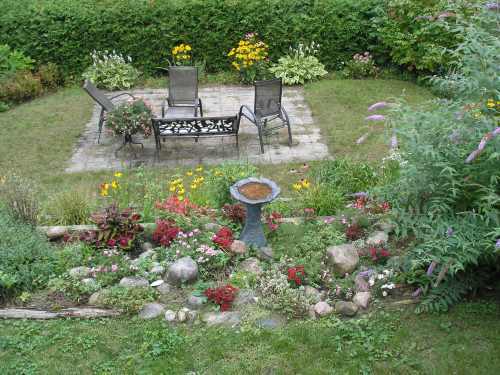
I wander the garden, wanting to see with my own eyes every new bud, every flower, every growth spurt. Aside from the few annuals we plant every year, the flowerbeds almost take care of themselves. Or do they?
Not really. The gardens at our former house took years of trial and error, transplanting, and labor. After ten years the vegetable garden with its raised beds and winding paths still required a struggle with weeds and worms. Seeing me out on my knees, Mary Helen often chided, “Why don’t you cut back on veggies and flowers. Take it a little easier.”

So when we downsized, Mary Helen assumed I would let nature take its course. But I can’t seem to bring myself to sit in a rocker and watch nature overrun the borders and lawns. My fingers start to itch. Images of perennial borders, raised vegetable plots, pathways through the woods, and bridges over the swampy places pop into my restless mind. Without the satisfaction of a daily stroll past beds of annuals and borders riotous with blooming perennials, life would seem pallid and colorless. Where’s the fun when there are no sore muscles and grubby fingernails? Besides, Mary Helen loves to bring in armloads of flowers to grace the house.
You guessed it. We had hardly moved into our new, smaller house before I was outside grubbing in the dirt. Surely there’s a lesson here.
Almost anything beautiful requires hard work. The monotonous practice of the budding pianist. The years of poverty of the acclaimed painter. Beautiful marriages, happy families, revived churches; all take lots of work and care—sweat and tears. Every day.
Someone has said that the thing about the Christian life is that it is so daily. Like a garden it requires daily prayer and obedience, daily worship and confession, daily concern for others. “Always give yourself fully to the work of the Lord, because you know that your labor in the Lord is not in vain.”[1]
True, Christian living is dependent on God’s ongoing gifts of grace. And our garden would be a wasteland without the right mix of sunshine and rain—things over which we have no control. We would be foolish to forget that whatever spiritual edifice we want to erect, whether it be a godly marriage, a Christ-centered home, an ethical business, or a unified church cannot happen without God’s grace. His grace, however, moves us; not to sit back and expect God to do everything, but to pitch in with effort and energy.
No wonder James writes, “Faith by itself, if it is not accompanied by action, is dead. . . . Show me your faith without deeds, and I will show you my faith by what I do.”[2]
And so we respond;
O Master, let me walk with Thee
In lowly paths of service free;
Teach me Thy secret; help me bear
The strain of toil, the fret of care.[3]
Like itchy gardeners working away in the soil, genuine Christians get their fingers dirty serving others. They know that doing what is good and true requires discipline and hard work. Sinning is easy—just relax and let your old nature do what it wants—doing what is right takes effort.
Father, help me through your Spirit, to have both faith and good works. Without you I can do nothing good. But help me not to use your promises as an excuse to relax and do nothing. Help me to labor in your service, to work long and hard to do what is good and true and merciful and loving. May others see a life adorned with genuine good deeds. Help me not to get weary in well doing. And help me to keep down the weeds of selfishness and pride and unconcern and lethargy and complacency so love and mercy may flower. In Jesus’ name.”
[Watch for news of the reprint of the devotional book, Down a Country Road]
(Let me know your thoughts on this subject. If you appreciate this blog, please pass it on. If I can help you spiritually, let me know. Further articles, books, and stories at: Facebook: Eric E Wright Twitter: @EricEWright1 LinkedIn: Eric Wright ; Eric’s books are available at: https://www.amazon.com/Eric-E.-Wright/e/B00355HPKK%3Fref=dbs_a_mng_rwt_scns_share)
[1] 1 Cor. 15:58
[2] James 2:17,18
[3] Hymn, O Master, Let me Walk with Thee by Washington Gladden
July 28, 2025
Plumbers and AI
AI is on everyone’s radar. Its development has been phenomenal, and in some areas beneficial. It has been used to improve the diagnosis of diseases, develop novel medicines, and even make crops more productive.[1] But as Little points out “Our technologies shape us—which can lead to either pride, domination, and idolatry; or purpose beauty, and service.”[2] Like all technological marvels there is always the potential for abuse. I imagine similar worries could have attended the shaping of iron into knives, the creation of dynamite, and the making of vaccines.
God has given mankind, as created in his image, enormous potential to foster human flourishing. But he has constrained that potential within the moral guidelines of his law. Unfortunately, “Companies such as OpenAI suggest regulation [of the industry] is needed and then balk when actual regulation is proposed. Meanwhile, harms well-documented by tech companies themselves (including misinformation and manipulation, data bias, and damage to the environment) continue largely unabated.”[3] As in the biblical time of the Judges, “everyone does what is good in their own eyes.”

Given AI’s phenomenal development everyone’s eye is on intelligence. But is intelligence, even artificial what society really needs above all else? Is this marvel redirecting our attention in the wrong directions? Is intelligence the answer to all our problems? Intelligence tests have been accurate in predicting achievement in college. But measurement of human potential in other areas is woefully lacking.
Here in our condo community we need good gardeners to deal with weeds and bushes gone wild. At this stage in our lives we need a handyman who can deal with repair issues; when the smoke alarm goes berserk, when the air-conditioner needs service, and when the dish washer drains water on the floor. Fortunately, we have a wonderful lady who comes to clean our condo. Intelligence? We need skilled workmen.
We are told that in the near future a million electricians will be needed. And what about plumbers? And framers, and roofers, and carpenters?
AI is not going to solve all our human problems. It may make some of them worse. And what about emotional flourishing? AI is not going to heal all our broken marriages or deliver us from anger, impatience, hatred, dissention, or war. Instead, it may lead us deeper into self-delusion, idolatry, and cruelty. And, dare I say it, AI may introduce humanity to the anti-Christ.
What we need among our technical innovators and around the world is just what Jesus Christ came to give us, GospelIntelligence. The transforming power of the Holy Spirit in the gospel enabling us flourish as forgiven sinners who are loving, gentle, thoughtful, patient, truthful, and joyful.
Lord, keep us from idolatry and delusion. Help us to become gospel-centred people.
(Let me know your thoughts on this subject. If you appreciate this blog, please pass it on. If I can help you spiritually, let me know. Further articles, books, and stories at: Facebook: Eric E Wright Twitter: @EricEWright1 LinkedIn: Eric Wright ; Eric’s books are available at: https://www.amazon.com/Eric-E.-Wright/e/B00355HPKK%3Fref=dbs_a_mng_rwt_scns_share)
[1] The July-August issue of Christianity Today has a series of articles on the implications of AI. For the sake of brevity, in my footnotes I’ll simply quote the page and author. In this case, p. 41, Nick Little.
[2] Ibid
[3] Stephen Carradini, p. 34
July 25, 2025
Trash on the Trail – choosing joy instead of gloom
Some years ago, my wife, Mary Helen, frowned when she came in from a walk. She described the first part of her walk in rather lyrical terms. “After the rain everything looked and smelled fresh and vibrant. Birds chattered and sang to me as I walked along. Happiness filled my heart. I felt so thankful for my Father’s goodness. Growth along the road was lush and green. The air was clear and fresh. Beauty surrounded me. Then I saw it!
“It immediately scattered my cheerful thoughts. Garbage by the side of the road! Someone had tossed out a whole bag of containers from a fast food outlet. A little further along I saw a paper cup and straw. How could anyone be so thoughtless? What kind of a person can’t wait to get rid of their rubbish until they find a trash container?

“My mood had suddenly shifted. But when I realized that I was letting garbage ruin my walk, I gave myself a good shake. I made a mental note to pick up the trash later. In the meantime, I asked the Lord to help me rise above thoughts of garbage so I could continue to enjoy my walk.
She continued, “This is so much like life. I sometimes get so distracted by what is ugly along the road, or in life, that I fail to count my blessings.”
The lesson Mary Helen drew from trash reminds us all to focus more on the positive than on the negative.
We cannot deny that life has no shortage of garbage moments; someone cuts us off in traffic or we receive a scary diagnosis. I’m sure God does not expect us to ignore trash or sail through difficult times with nary a tear. However, Mary Helen was right in refusing to let garbage distract her from enjoying a beautiful day. I have to admit, she was much better at doing that than I.
This reminds me of the amazing message of Philippians. Although the author, the apostle Paul, was in Roman chains facing possible death he wrote a “joy epistle”. Six times he talked about joy. “I always pray with joy because of your partnership in the gospel.”[1] Nine times he mentioned rejoicing. “Rejoice in the Lord always. I will say it again: Rejoice!”[2]
In part, Paul’s optimism can be traced to his determination to direct his mind away from thoughts of garbage. Reflecting this mindset, he exhorted the Philippians in these immortal words: “Whatever is true, whatever is noble, whatever is right, whatever is pure, whatever is lovely, whatever is admirable—if anything is excellent or praiseworthy—think about such things.”[3] Paul does not ignore problems, persecution or pain but he does bring to all his writings a hopeful outlook. If he were walking down our road he might see the trash but choose to focus more on the wildflowers.
Some of us are pessimists. We allow a tiny, distant cloud to spoil our enjoyment of sunshine. We gloss over the flowers to focus on the weeds. We miss the rainbow in the rainstorm. The weather is either too hot, too cold, too wet or too dry. We find the preacher either used too many illustrations or not enough. I blush to admit being a member of pessimists anonymous—I’m still taking the cure.
In Paul’s case, his hopeful outlook can be traced to his God-centred view of life. He rejoiced that whatever the devil might do in Philippi, he could not thwart God’s grace. “I always pray with joy . . . being confident of this, that he who began a good work in you will carry it on to completion until the day of Christ Jesus.”[4] Bad things will happen to us but nothing will stop God from completing his gracious work in our midst.
Paul realized that his imprisonment furthered God’s purposes. “Now I want you to know brothers, that what has happened to me has really served to advance the gospel. . . . [it is] clear throughout the whole palace guard and to everyone else that I am in chains for Christ. Because of my chains, most of the brothers in the Lord have been encouraged to speak the word of God more courageously and fearlessly.”[5] What chance has discouragement to gain a foothold if we embrace such a vision?
Nevertheless, Paul is not naively optimistic. He made these statements without ignoring the garbage around him in Rome and in the Philippian church. He wrote that some even “preach Christ of envy and rivalry . . . from false motives.”[6] He reminded them that they lived “in a crooked and depraved generation.”[7] Many of his co-workers, with the exception of Timothy and Epaphroditus, were looking out for their own interests and not those of Jesus Christ.[8] Those of the circumcision party insinuated themselves into their midst with the purpose of enslaving them in legalistic laws rather than helping them to soar in the freedom of Christ.[9] Disunity was also a danger.[10]
These concerns, added to the severity of Paul’s circumstances, might have led Paul to write a very pessimistic epistle. Yet he didn’t. He had such a high view of the purpose of Christ and the overwhelming value of being forgiven and declared righteous in Christ, that everything else seemed insignificant. “I consider everything a loss compared to the surpassing greatness of knowing Christ Jesus my Lord, . . . the righteousness that comes from God and is by faith . . . I press on to take hold of that for which Christ Jesus took hold of me. . . . forgetting what is behind and straining toward what is ahead, I press on toward the goal to win the prize for which God has called me heavenward in Christ Jesus.”[11]
The hopeful, positive nature of the book of Philippians reflects Paul’s heavenly perspective and commitment to the purposes of God. As we emulate his outlook, we too will be enabled to look beyond this world’s troubles and trash to recognize the onward march of God’s kingdom. Wow, I need that reminder in these days. (Read Philippians 4:4-9)
Father, continue to overcome my bent towards pessimism. Help me not to miss the blessings you scatter along my pathway. Train me to think about good and beautiful and praiseworthy things and not focus on garbage. Give me a heavenly perspective that enables me to see beyond problems to recognize your providence. Help me to value what Christ values. For yours is the kingdom and the power and the glory forever. Amen.
[1] Phil. 1:4
[2] Phil. 4:4
[3] Phil. 4:8
[4] Phil. 1:4,6
[5] Phil. 1:12-14
[6] Phil. 1:15,18
[7] Phil. 2:15
[8] Phil. 2:19-30
[9] Phil. 3:2,3,18,19
[10] Phil. 4:2,3
[11] Phil. 7,8,9,12-14
July 16, 2025
Crows In Convention
I was out for a walk one day when loud cawing attracted my attention to a tree across a distant field. A convention of crows blackened the tree. Glancing around, I spotted crows flying towards this congregation from every point of the compass. Strange! Was it curiosity that brought them winging their way from distant corners of the township? Or was it news of carrion to devour? Not speaking crow-talk I couldn’t tell, but it did remind me of the importance of gathering together with other Christians.
Crows are not solitary creatures; they forage in small flocks. Many birds and animals pass their lives in the company of others of their species. Gaggles of geese. Coveys of quail. Herds of deer. Packs of wolves. Flocks of starlings.
Earth’s gregarious creatures teach us many lessons, among them the importance of togetherness. The siren song of open fields and tract-less forests may charm us with the wonder of solitude but we need fellowship too.
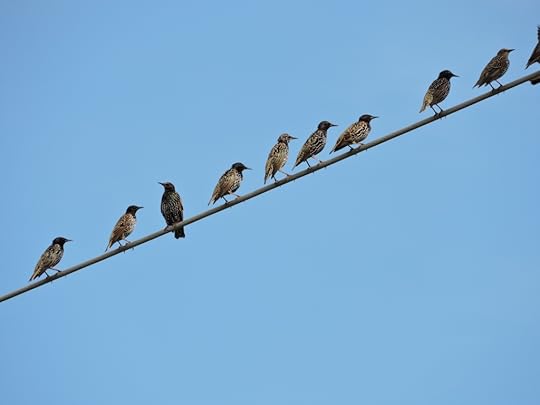
In our noisy crowded world, solitude is a treasure. We would all be much better off if we wrote no trespassing over the special blocks of time when we seek God alone. But if we don’t balance solitude with companionship we run the risk of becoming eccentric, self-centred and anti-social. Especially in this time when the siren song of cell-phone screens screams for our attention.
With Mary Helen, my first wife, and now Phyliss, I’m fortunate to be seldom completely alone. I’m often so contented with my little corner in the country, I don’t miss the crowded malls and busy streets of the city I left behind. Without care, I might even find excuses to stay home from church services. After all, gas is so expensive!
Taking that route would be extremely harmful. The early church “devoted themselves to the apostles’ teaching and to fellowship, to the breaking of bread and to prayer. . .All the believers were together . . . Every day they continued to meet together in the temple courts. They broke bread in their homes and ate together with glad and sincere hearts”[1] The time would come when they would be scattered, but even when hounded from place to place, they sought each other out. The strength they gained from togetherness enabled them to withstand persecution and thrive even while the society around them decayed.
Alone, we struggle against impossible odds to extend the kingdom. Alone, our potential is often unrealized or blunted. Alone we are one-sided, imbalanced—caricatures of what we can be together. In the context of a church fellowship, our gifts flower and the body of Christ is built up.
Following a solitary path through life creates distortions of viewpoint and character. By contrast, “as iron sharpens iron, so one man sharpens another.”[2] “There was a man all alone; he had neither son nor brother. There was no end to his toil. . . . Two are better than one, because they have a good return for their work: If one falls down, his friend can help him up. But pity the man who falls and has no one to help him up! Also, if two lie down together, they will keep warm. But how can one keep warm alone? Though one may be overpowered, two can defend themselves. A cord of three strands is not quickly broken.”[3] What is true of two people is doubly true of groups of people joined by their allegiance to Jesus Christ.
Alone we are easy targets. Twigs easily bent. Susceptible to temptation, to whispers, to wild schemes, to an exalted opinion of ourselves. Therefore, “Let us not give up meeting together, as some are in the habit of doing but let us encourage one another—and all the more as you see the Day approaching.”[4] Clearly, the writer of this epistle faced the same challenge in his day as we do in ours—of convincing people about the fundamental importance of regular Christian assembly. Too many in our day claim, “We worship God quite well, thank you, on the golf course, in front of a TV set, or while walking on the beach.”
Even when other Christians disappoint us, and they do, it is dangerous to conclude that we would be better off doing our own thing. Instead of complaining about our local church, we should give thanks for the opportunity to share our joys and sorrows with others whom Christ has called out of darkness. We need fellowship, the comforting, edifying, encouraging, challenging, worshipping company of others. (Don’t misunderstand me here, many of our churches could use a healthy dose of self-criticism leading to genuine renewal. A vibrant church is always undergoing spiritual renovation.)
The deceitful elixir of self-reliance is a heady brew I know all too well. Some of us seem to be born with an independent streak. In weak moments, I dremt of settling down in a log cabin in a lonely Rocky Mountain valley. Then I wake up to reality, to moods that can only be driven off by the exuberance or encouragement of others. I could list dozens of times when gloom or discouragement, even despair, has been banished by forcing myself to go to a prayer meeting or a worship service or a Bible study. Often the very act of sitting down with other believers raises the spirits. There’s a group of guys I regularly meet with for Bible study and lots of laughs. If crows instinctively band together, shouldn’t we gather regularly with other believers to join our voices in worship and prayer?
Heavenly Father, listen to my prayer as I bow in supplication and praise. Help me to treasure these times of quietness. But Lord, you know my temperament. Assist me to balance solitude with fellowship. You know, Master, that our church is far from perfect and I have many foibles. Move me to overlook the very human frailties of others, to celebrate the real evidences of your Spirit at work. Please help me not to forget that we are all spiritual beggars seeking bread. Speak to me through your servant’s preaching. Unite my heart with others in worship. Guide me to join others in prayer. Use my gifts to serve the church. May I be an encouragement, a comfort, a blessing to others. Lord, I thank you for the times when you meet me in solitude and the many times you come close in the midst of the church family!
(Let me know your thoughts on this subject. If you appreciate this blog, please pass it on. If I can help you spiritually, let me know. Further articles, books, and stories at: Facebook: Eric E Wright Twitter: @EricEWright1 LinkedIn: Eric Wright ; Eric’s books are available at: https://www.amazon.com/Eric-E.-Wright/e/B00355HPKK%3Fref=dbs_a_mng_rwt_scns_share)
[Watch for news of the reprint of this book!]
[1] Acts 2:42,46
[2] Prov. 27:17
[3] Eccl. 4:8,9-12
[4] Heb. 10:25



